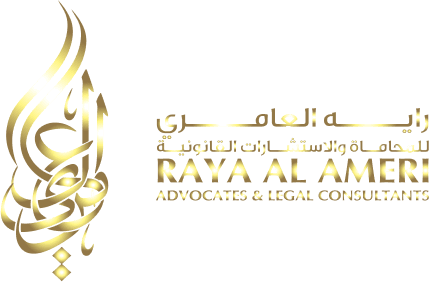In every jurisdiction, legal frameworks define the rights and statuses of its inhabitants. In the United Arab Emirates (UAE), the intricacies of inheritance for non-Muslims find their origins in Islamic Sharia law. Sharia, predominantly extracted from the Quran and the Sunnah (the teachings of Prophet Muhammad PBUH[1]), serves as the foundational basis for inheritance and succession. This religious legal system extends its influence into various facets of Muslim life, encompassing morality, family, personal status, charity, community affairs, and, significantly, inheritance among other aspects.
The Personal Affairs Law universally governs all UAE citizens, except for non-Muslims. Additionally, it extends its jurisdictional reach to encompass all expatriate residents, irrespective of their religious affiliation, unless they explicitly request the application of their native legal system[2]. Pursuant to the Personal Affairs Law, the Civil Code explicitly stipulates that inheritance matters should be guided by the legal framework of the deceased[3], which pertains to the law of the deceased’s home country or community at the time of their demise.
However, when addressing inheritance for non-Muslims within the UAE, the Family Division of the Dubai Courts’ Court of First Instance consistently adheres to UAE legal principles. This includes the imperative of ensuring that any pertinent foreign legal systems align with the nation’s public order and moral standards[4].
The Importance of Wills
It is pivotal to understand that UAE Courts do not automatically apply foreign laws. Instead, they necessitate the presentation of tangible proof of the election of such foreign legal frameworks. For instance, a will previously executed and duly authenticated at the “Wills and Estates Registry for non-Muslims” within the Dubai Courts (Dubai Courts Registry) fulfills this requisite. Such a will may be subjected to the governing law of the testator and may encompass all assets, notwithstanding the provision in the Civil Code which asserts the application of UAE law to real estate properties situated within the country and bequeathed by foreign individuals within their wills.
Historically, the Dubai Courts made an exception with regard to freehold property, permitting its distribution in accordance with the deceased’s will. However, this paradigm underwent a transformation with the issuance of Dubai Law No. (15) of 2017 Concerning Administration of Non-Muslim Estates in Dubai and Execution of their Wills (Dubai Law). This legislation, published in the Official Gazette in early November 2017, unequivocally stated that the law of the Emirate of Dubai shall govern inheritance for non-Muslims within the United Arab Emirates or wills encompassing real property.
In situations where no will exists, local Courts are likely to apply Sharia rules. In cases where the deceased left a will registered at the Dubai Courts Registry, the probate stage for the heirs must be initiated. Furthermore, the provision of a copy of the relevant foreign legislation (properly legalized and translated into Arabic) becomes a prerequisite. Failure to meet these stipulations results in the automatic application of Sharia law. In such instances, concerned parties possess the recourse to appeal to the Court of Appeal, with the Court of Cassation serving as the ultimate appellate body.
The DIFC Wills And Probate Registry
In addition to the Dubai Courts Registry, the DIFC Wills and Probate Registry (DIFC Registry) stands as a highly favored alternative among non-Muslim expatriates residing in the UAE.
The DIFC Registry operates as a dedicated repository for wills executed by non-Muslims within the Dubai International Financial Centre (DIFC), a financial free zone governed by common law, distinguishing it from the Sharia or Civil law paradigms. Established as a public entity under the aegis of the Government of Dubai, the DIFC Registry falls within the jurisdiction of the DIFC Courts. The validity of wills registered at the DIFC Registry is subject to the regulations of DIFC law, thereby safeguarding testamentary freedom.
This jurisdiction encompasses both movable and immovable assets (including real estate, bank accounts, and company shares) held by the testator at the time of their passing, both within the Emirate of Dubai and, more recently, in the Emirate of Ras Al Khaimah. Various categories of wills, such as property wills, free zone company wills, and wills pertaining to financial assets, are made available to testators at the DIFC Registry, contingent upon specific conditions.
Practically speaking, it is essential to note that wills registered with the DIFC Registry are executed solely in English and, upon the testator’s demise, are enforced by the DIFC Courts. This ensures the preclusion of Sharia law application in probate cases involving non-Muslim individuals.
For comprehensive guidance on handling matters related to inheritance for non-Muslims and wills within the United Arab Emirates (UAE), or any other family law-related issues within the UAE, we encourage you to reach out to us. Alternatively, you can arrange for an appointment to receive online legal support on any legal matters pertinent to the United Arab Emirates (UAE).



